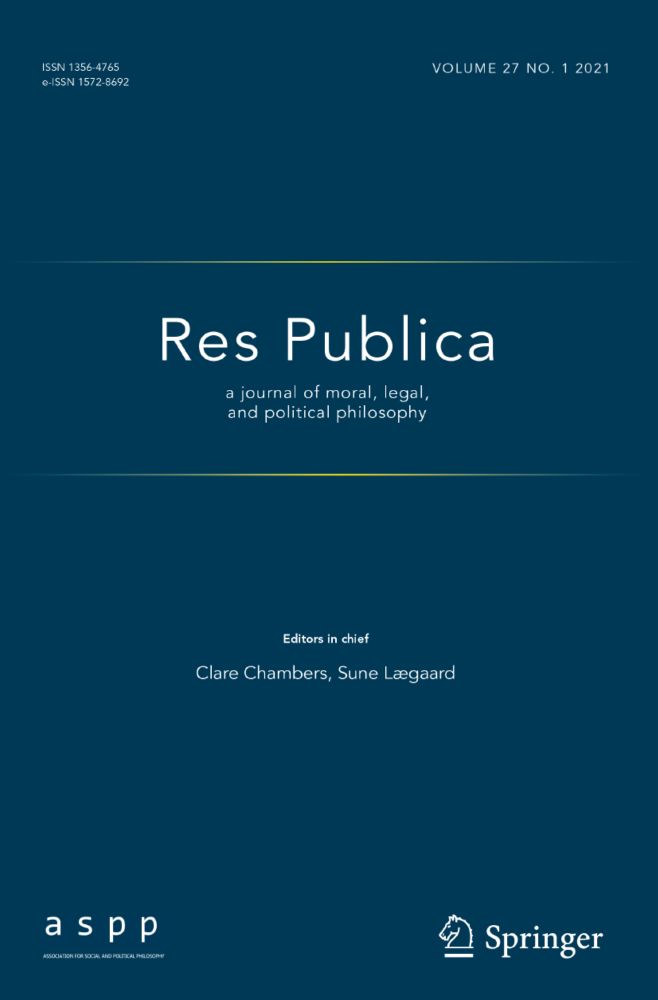My paper ’Theories of Normative Legitimacy Beyond the State and the Role of their Conceptual Dimension: A Methodological Insight from Raz’s Service Conception of Authority’ has just been published on Res Publica (Springer Nature)!
link.springer.com/article/10.1.... 1/4

Theories of Normative Legitimacy Beyond the State and the Role of their Conceptual Dimension: A Methodological Insight from Raz’s Service Conception of Authority - Res Publica
Many contemporary accounts of normative legitimacy beyond the State have tried to apply legitimacy requirements traditionally developed to justify State authority to non-State entities. This has often resulted into a State-centric ‘impasse’, where the structural differences between domestic and non-State exercises of normative power have led many to conclude that legitimacy cannot ever be achieved in a robust sense at the international, supranational, and global level, and that we should either abandon the concept or put forward very minimal normative requirements. Against this backdrop, this paper argues that we ought to get out of the State-centric impasse to make sure that theories of non-State legitimacy retain their normative grasp and prescriptive function by striking a better balance between idealism and realism. To do so, theories of normative legitimacy beyond the State should incorporate a methodological insight drawn from Joseph Raz’s service conception of authority: namely, the dependency of its normative dimension of what makes authority legitimate on a conceptual dimension of what authority entails. Up until this point, the legacy of Raz’s theory in relation to the study of non-State authority has typically been limited to the question of whether its normative legitimacy requirements can be successfully translated into the global domain. However, the most valuable yet under-investigated aspect of the service conception for the study of non-State legitimacy goes beyond its Normal Justification Thesis (NJT) and can be found in this reliance of its normative dimension on its conceptual dimension. As the paper shows, this element of the service conception may be particularly instructive for how putative theories of legitimacy beyond the State ought to be developed even in those cases in which the NJT is not picked out as the definitive way to assess the legitimacy of non-State authorities. Overall, this paper argues that moving past State-centric standards of legitimacy in our assessment of non-State regulatory entities requires us to choose substantive criteria of legitimacy that, similarly to the one adopted by Raz’s service conception, are drawn from a conceptual understanding of what it means to hold authority.














